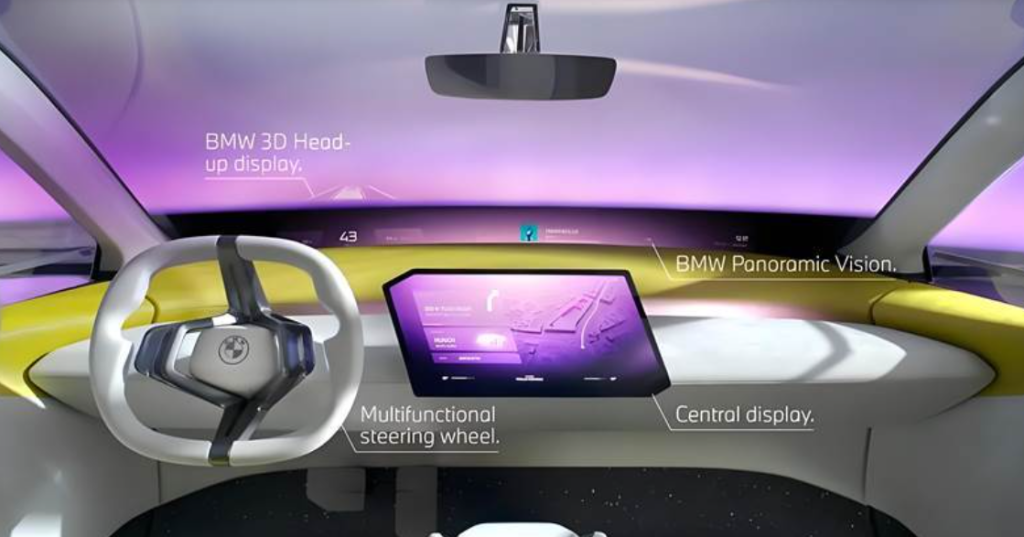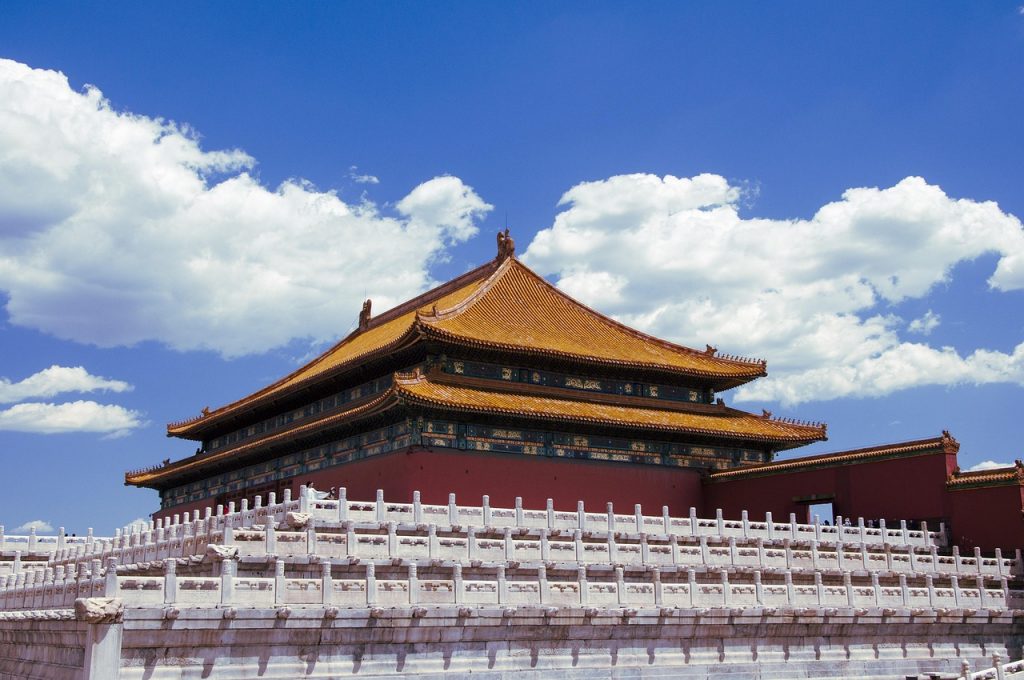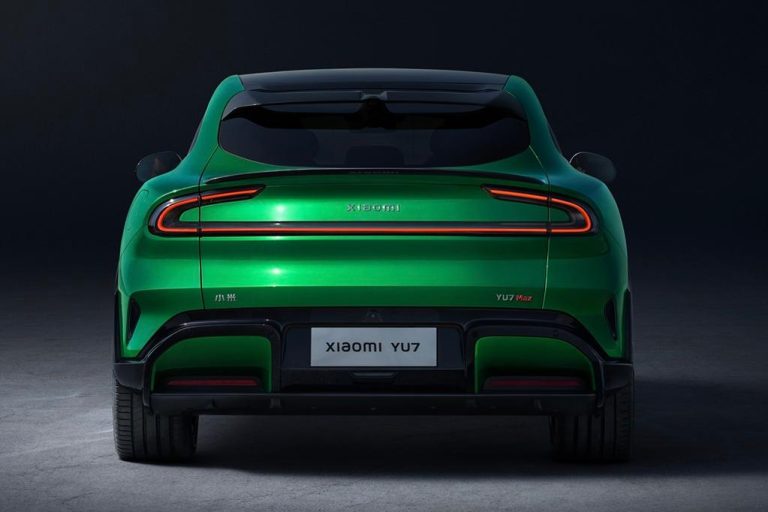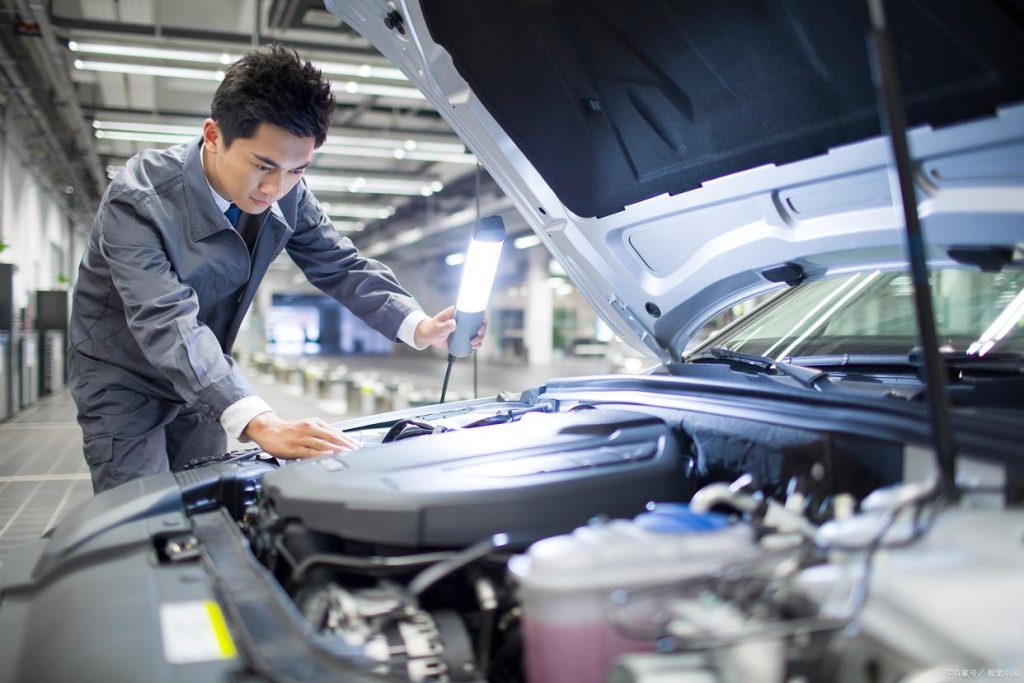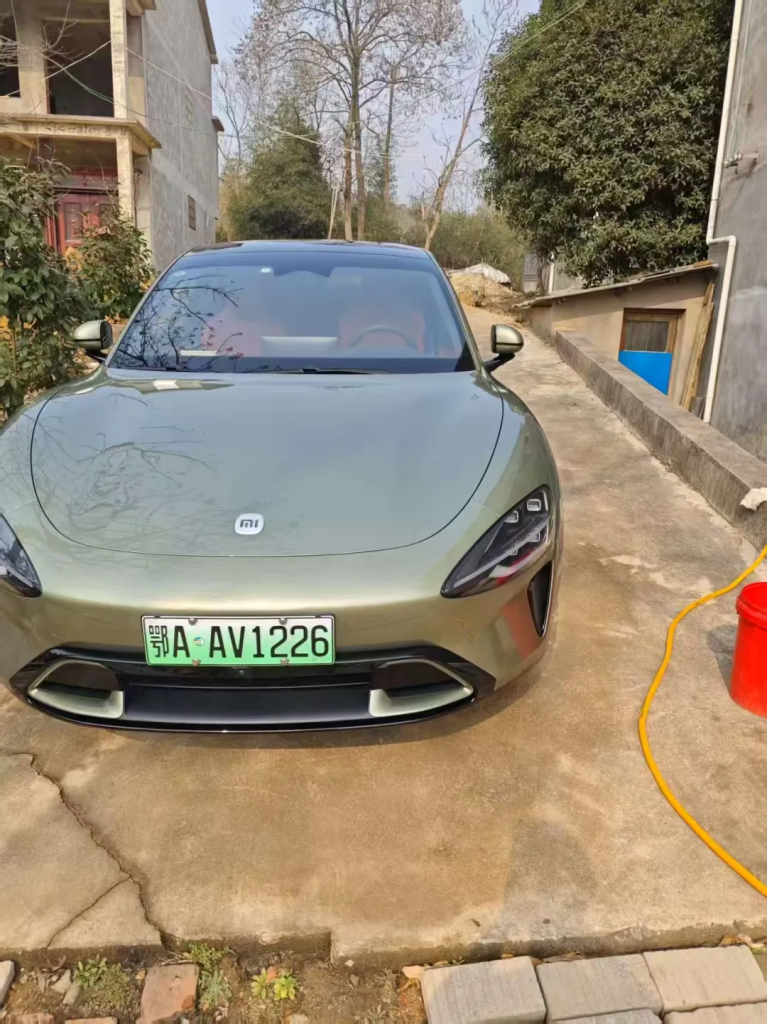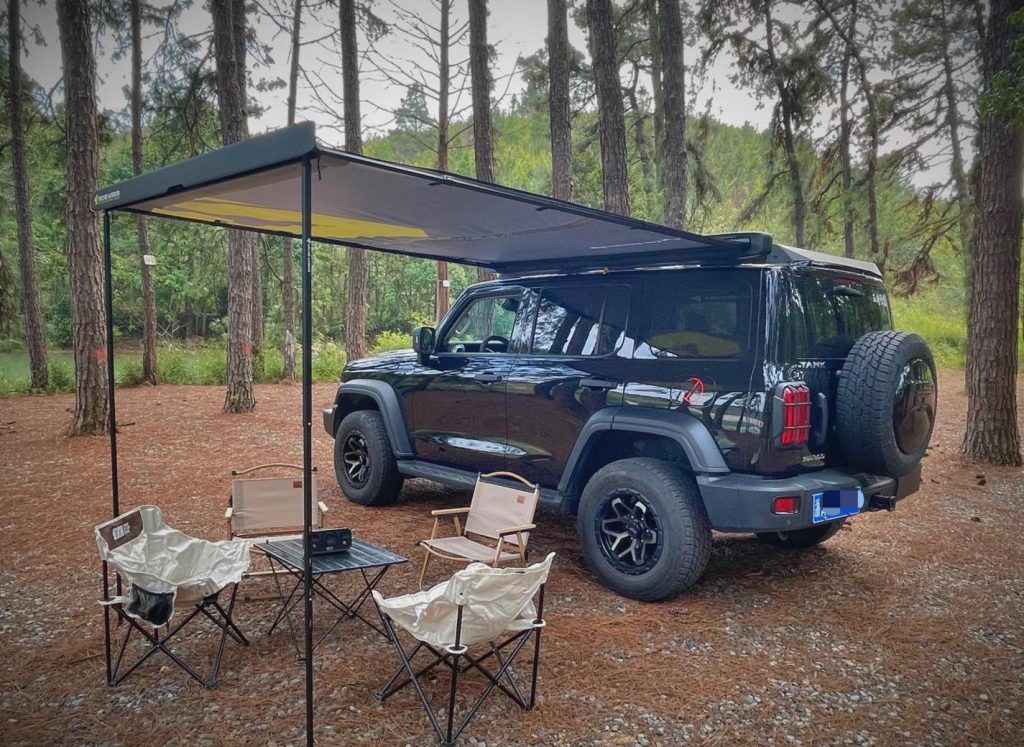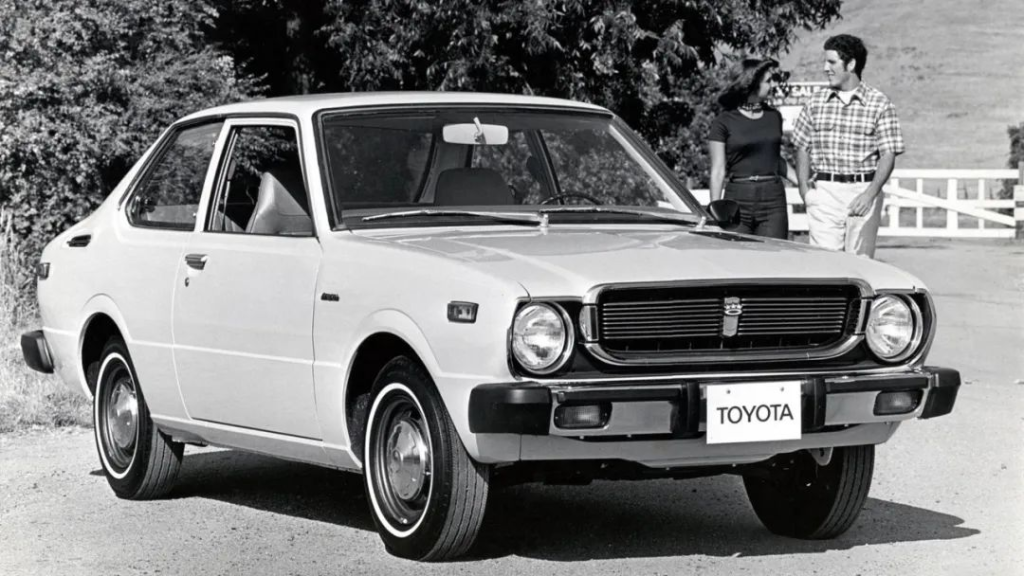The Great Outdoors, Reimagined
On a misty morning at the foot of JFS Mountain near Chongqing city, a father and his daughter kneel beside a polished stainless-steel kettle, waiting for water to boil. The scene could belong to any camping trip worldwide – except for one detail: their kettle is plugged into a $40,000 NEV SUV. Nearby, a collapsible moon chair branded with a luxury outdoor logo stands beside an Instagram-worthy melamine table set.
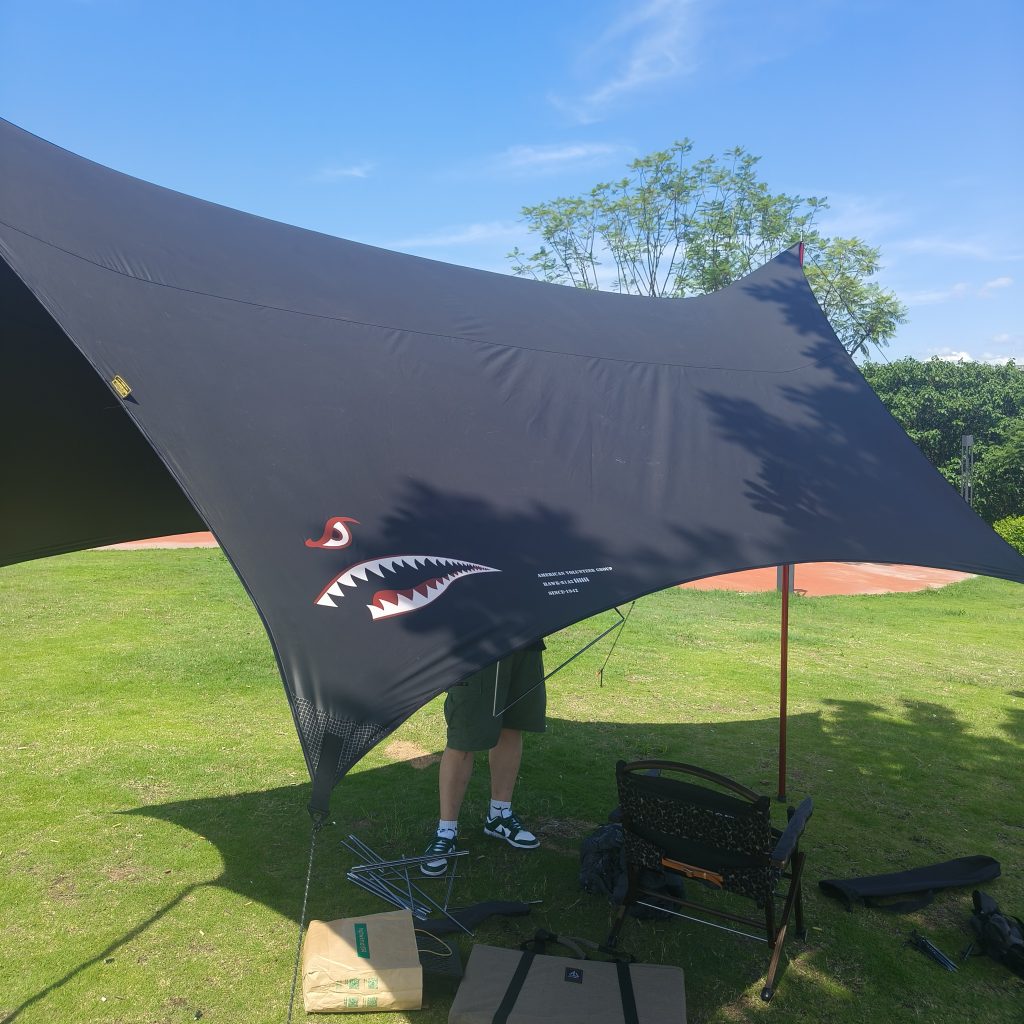
This is urban escapism, Chinese middle-class style.
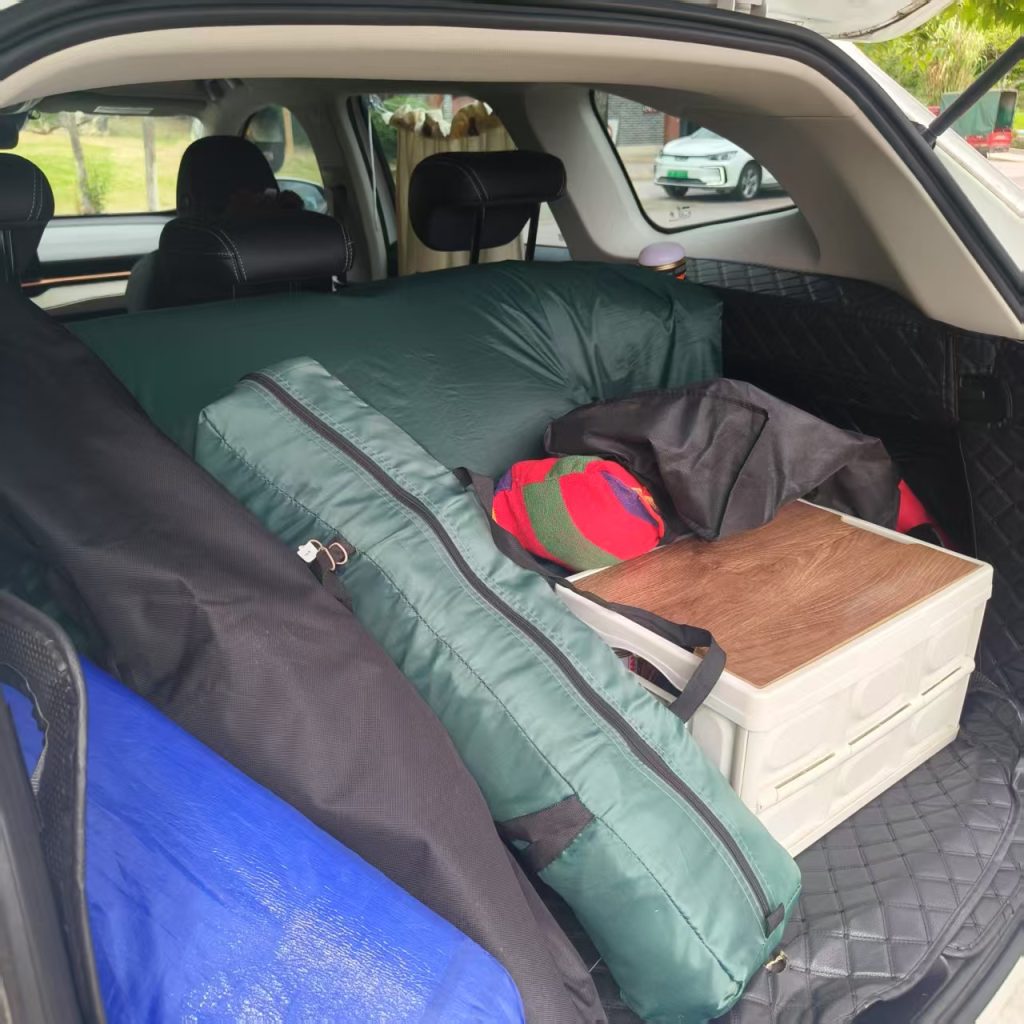
Intentions: The New Camping Calculus
Unlike Western camping traditions rooted in survivalism or national park pilgrimages, China’s urban campers pursue a carefully curated equilibrium between nature and convenience. For them, camping isn’t about roughing it – it’s about controlled decompression. (Voice-over: Have you ever imagined getting up an hour early on Saturday just to snag a good spot on the grass?…Gosh…)
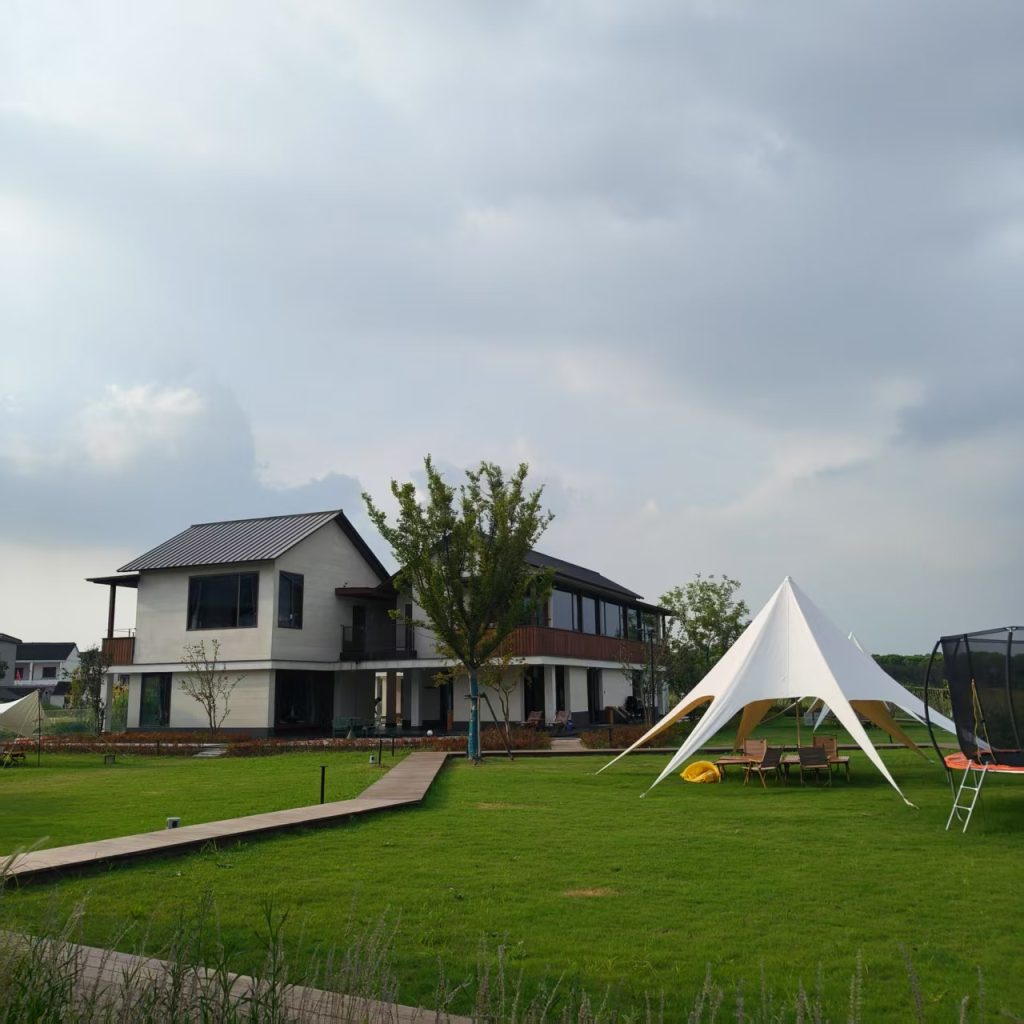
Interviews with over a dozen city dwellers reveal three recurring themes:
- Digital Detox Lite: Parents speak of camping as “screen time redemption” – a chance to show children fireflies instead of iPad animations, albeit while documenting the experience on Xiaohongshu.
- Status Performance: A Guangzhou tech executive admits his $1,800 SnowPeak tent is more a social gear: “It’s about signaling you could disappear into the wilderness with taste… even if you just drive 30 minutes to a paid campground.”
- Memory Engineering: Young mothers like Shanghai’s Fiona Chen plan trips around “KPIs” – how many “firsts” (first toasted marshmallow, first insect encounter) they can create for toddlers’ future nostalgia.
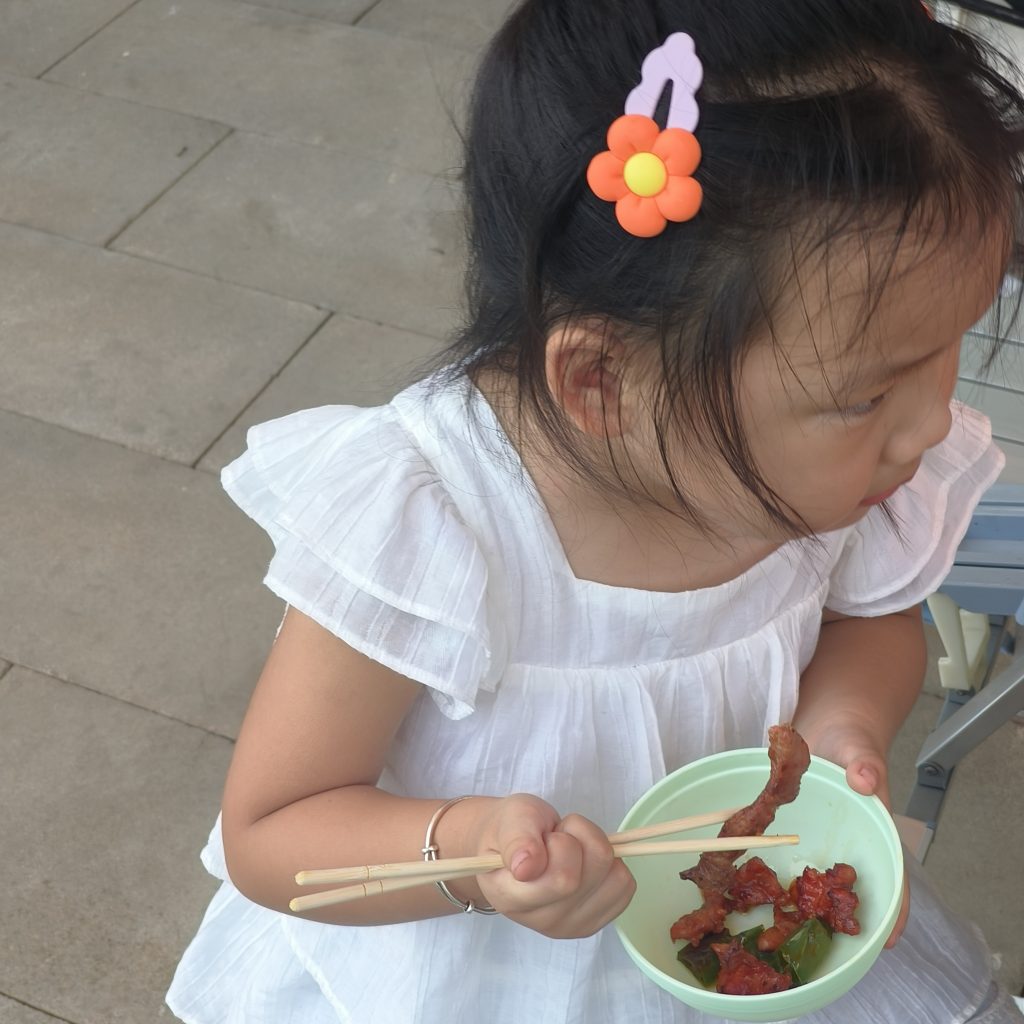
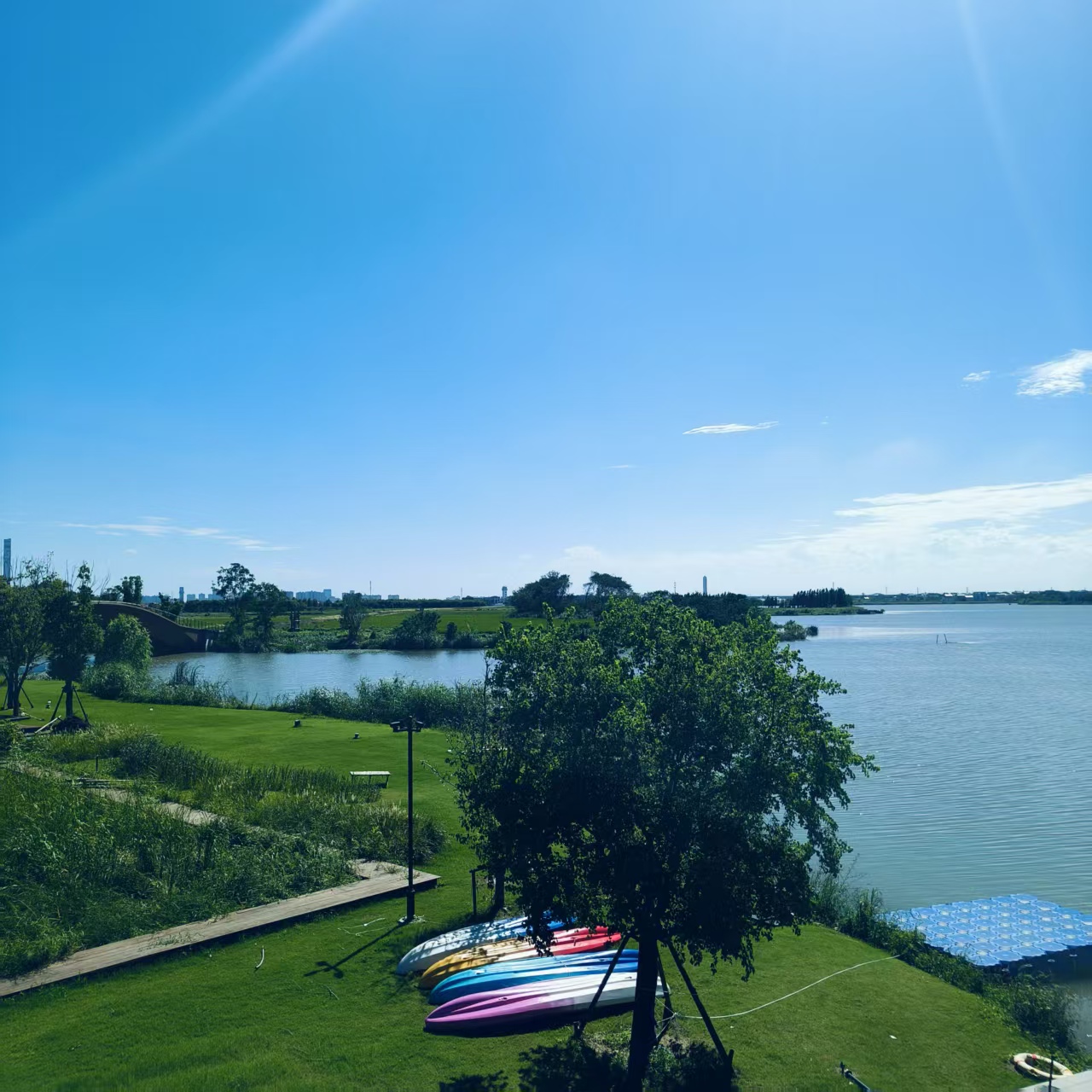
Pain Points: The Luxury of Problems
The very gadgets enabling this movement also expose its contradictions:
- “Glamping” Guilt: Weekend warriors sheepishly confess to using disposable tableware despite owning titanium cooksets – because no one wants to scrub pans beside a new Chery SUV or Mercedez GLS.
- Logistical Theater: For Shanghai’s elite, preparing for nature now means, planning the authenticity consumes 3x the actual outing time.
- Nature Deficit 2.0: Teens complain about “forced analog fun” while sneaking AirPod pros under noise-canceling headphones designed to block campground karaoke.
Yet the unmet needs hint at seismic market shifts ahead. Urbanites don’t want heavier tents – they want lighter organizational labor. The dream isn’t a bigger cooler, but a plug-and-play ecosystem where NEV SUVs double as power stations, kitchen units unfold like Japanese puzzle boxes, and every gadget has a designated place.
The takeaway? We conclude they haven’t escaped urbanization – they’ve just rebranded convenience as adventure. Like glamping’s $1,000 yurts with WiFi, today’s weekend picnic increasingly resembles an comfort, posh Airbnb experience with more mosquitoes.
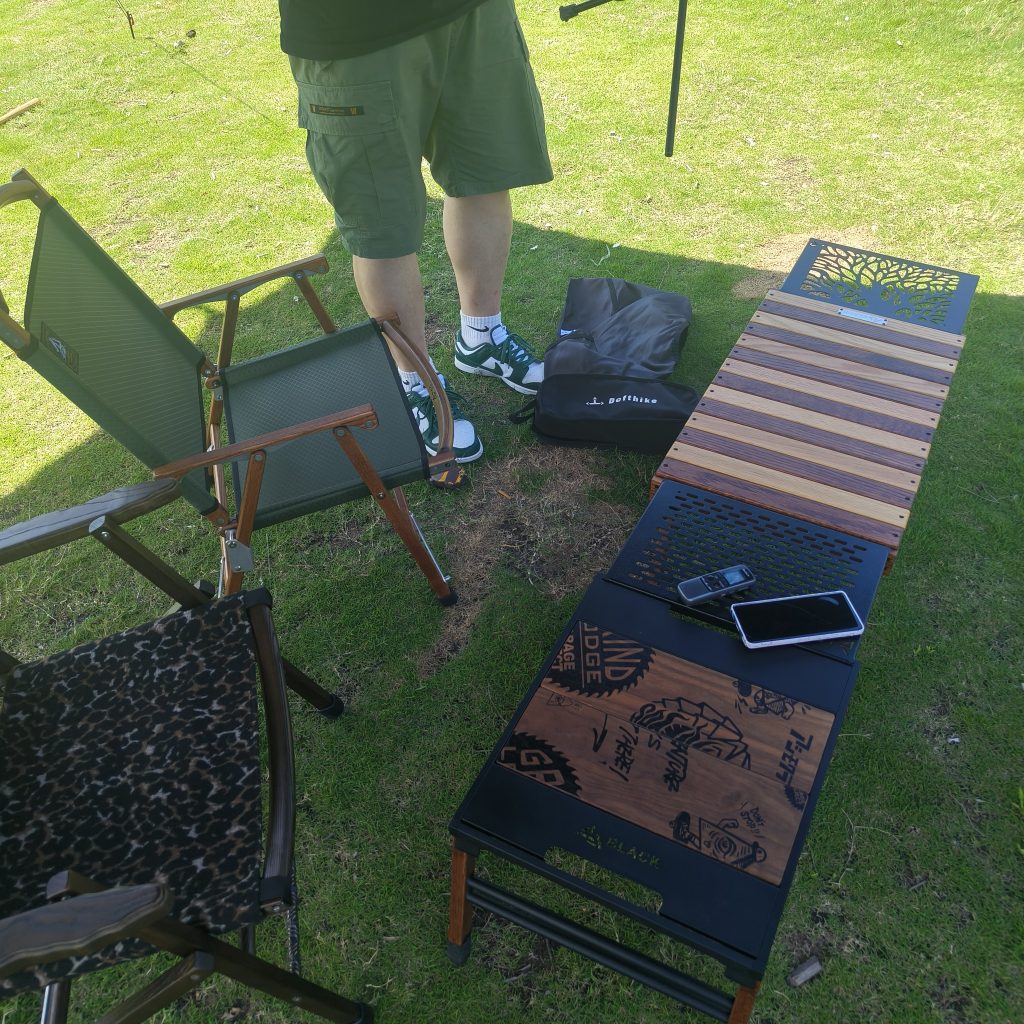
The Road Ahead – What OEMs Should Deliver
For automakers eyeing China’s BOOMING camping/picnic market, simply slapping a rooftop tent on an SUV is no longer enough. Having personally interviewed hundreds of campers and observed their evolving needs in the field, we can confidently say urban campers now expect vehicles that seamlessly transition from weekday commuters to fully furnished weekend retreats- without the hassle.
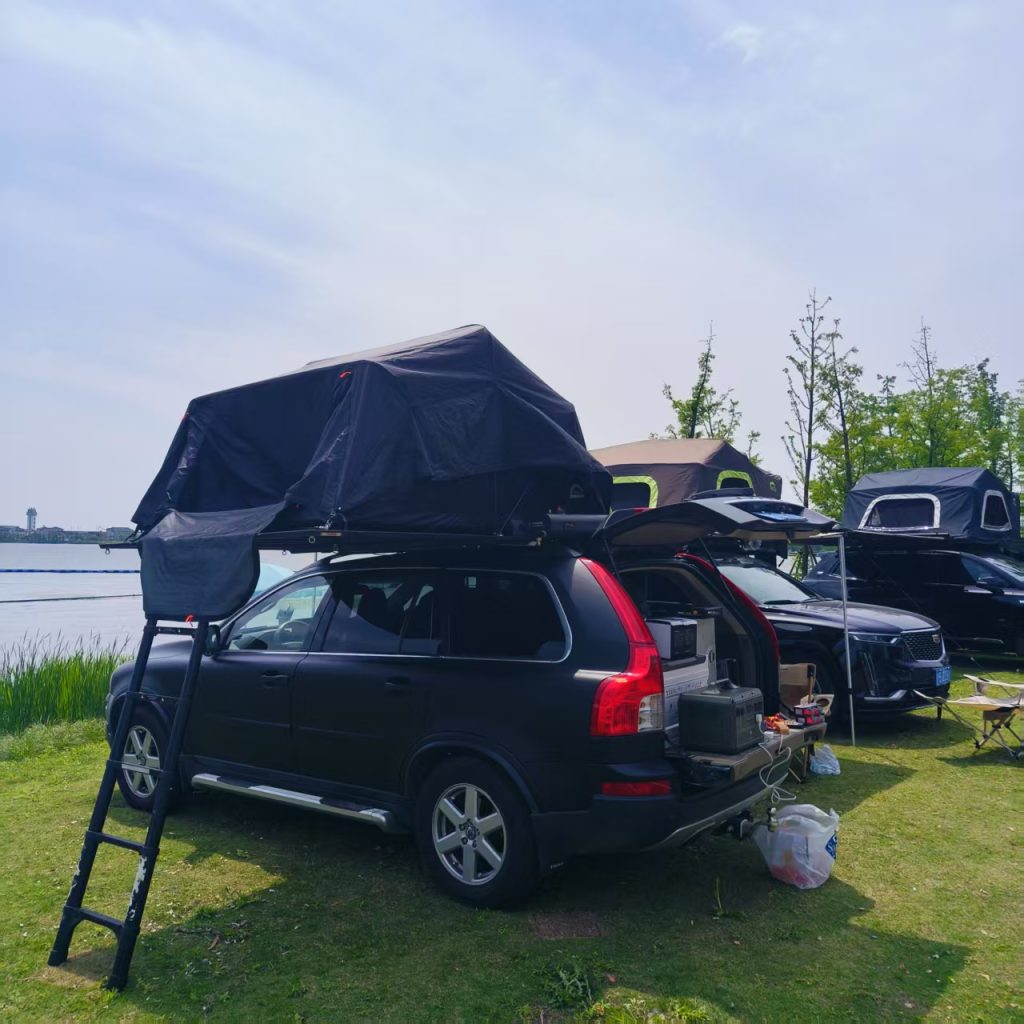
Here’s what they’re asking for:
- Modular Flexibility: Parents want vehicles that transform effortlessly – fold-flat seating for naps, slide-out kitchens that eliminate the need for clunky propane stoves, and hidden storage compartments that keep gear organized but invisible.
- Power on Demand: The ability to run a coffee grinder, projector, and portable fridge simultaneously isn’t a luxury – it’s a necessity. Bidirectional charging (vehicle-to-load) should be standard, not an upsell.
- Smart Camping Integration: Why should setting up camp feel like assembling IKEA furniture without instructions? Future SUVs need AI-guided setups – auto awnings, voice-activated lighting, and apps that pre-scout level ground for parking.
- Durability Meets Design: Waterproof seat fabrics, sand-resistant cabin air filters, and scratch-proof interior finishes should be baseline. But campers also expect aesthetic appeal – earthy tones, sustainable materials, and discreet branding that doesn’t scream “adventure poser.”
The winning OEMs won’t just sell a car – they’ll sell convenience. Because in China’s fast-paced urban jungles, the true luxury isn’t getting away from it all. It’s bringing just enough of home into the wild – a truth we’ve verified through countless campsite conversations and behavioral observations.
Taken by Judy, exclusive contribution. The pictures were used with the interviewee’s consent. Copyright belongs to zingev.com.
About the author
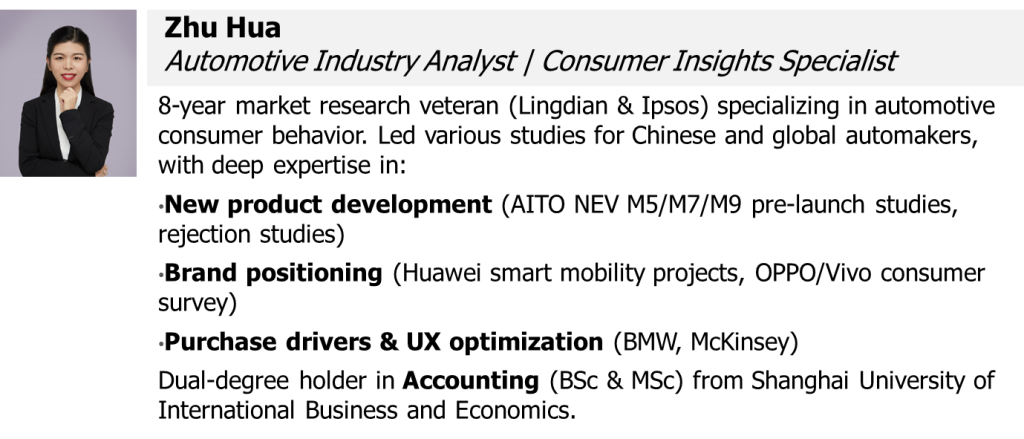


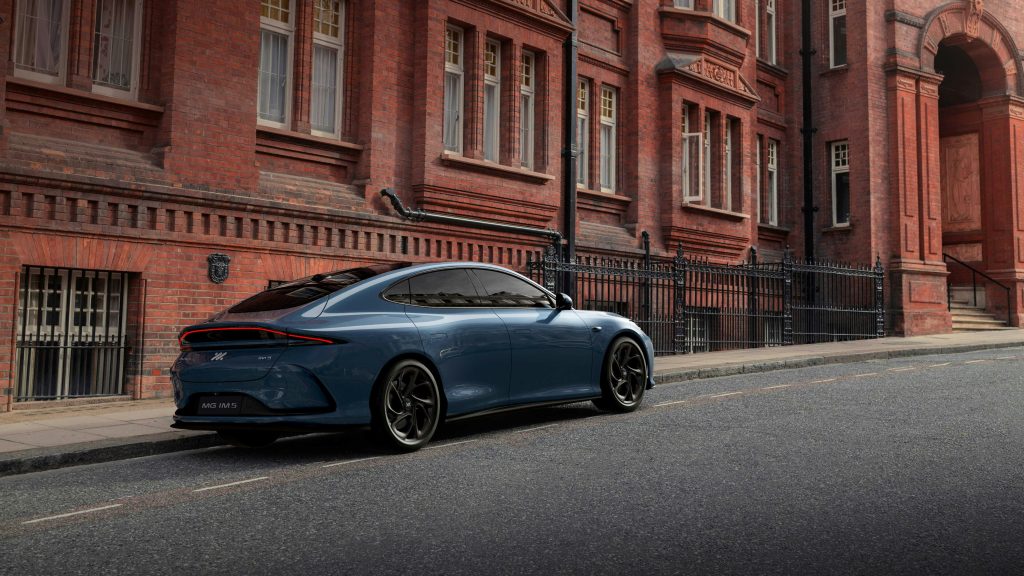
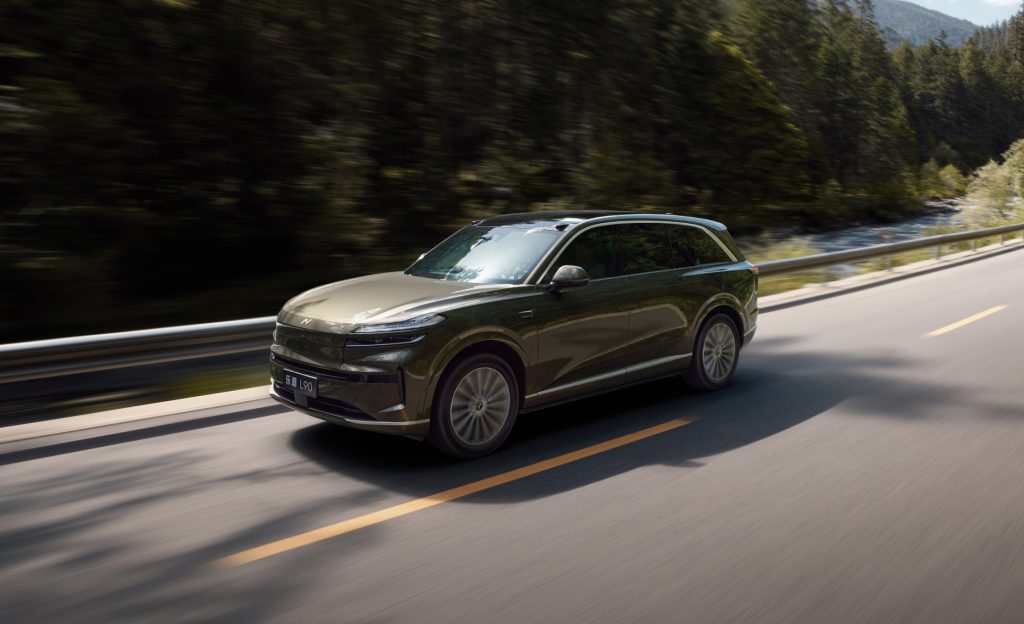
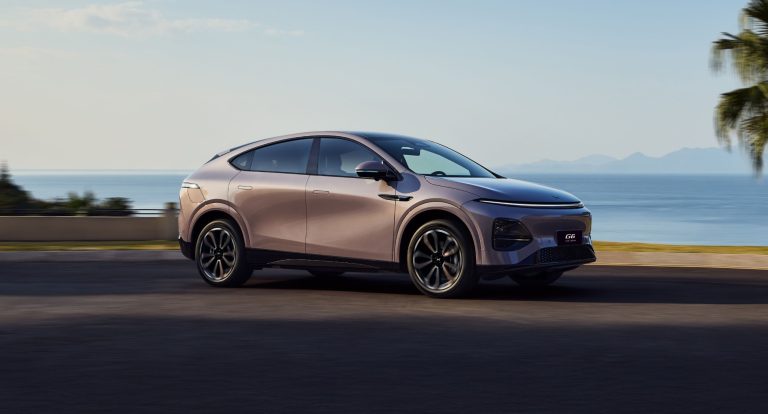

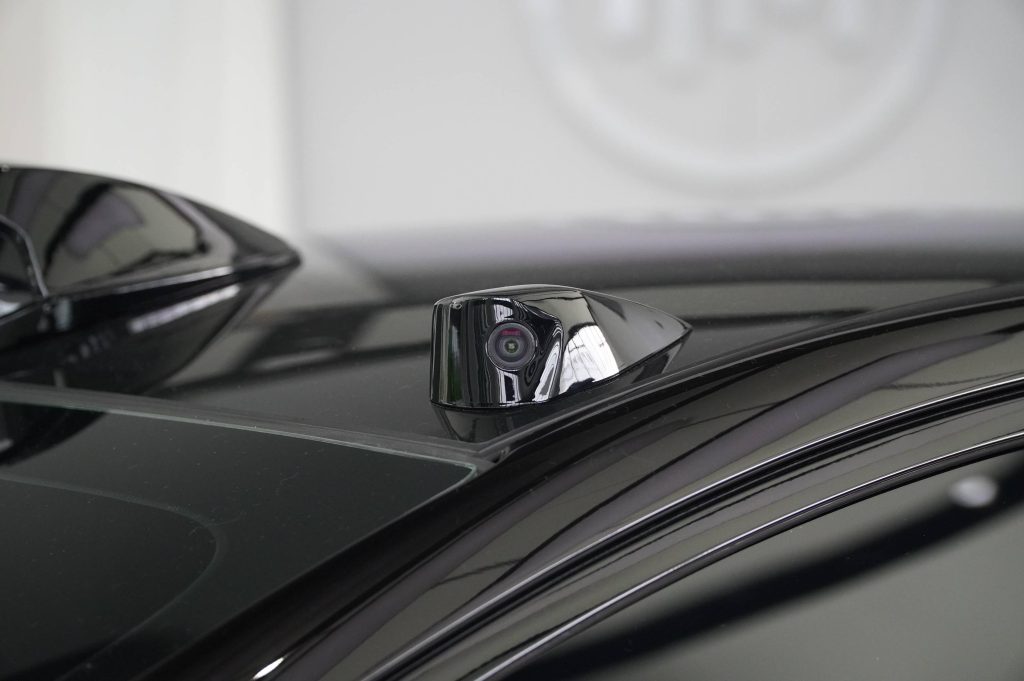
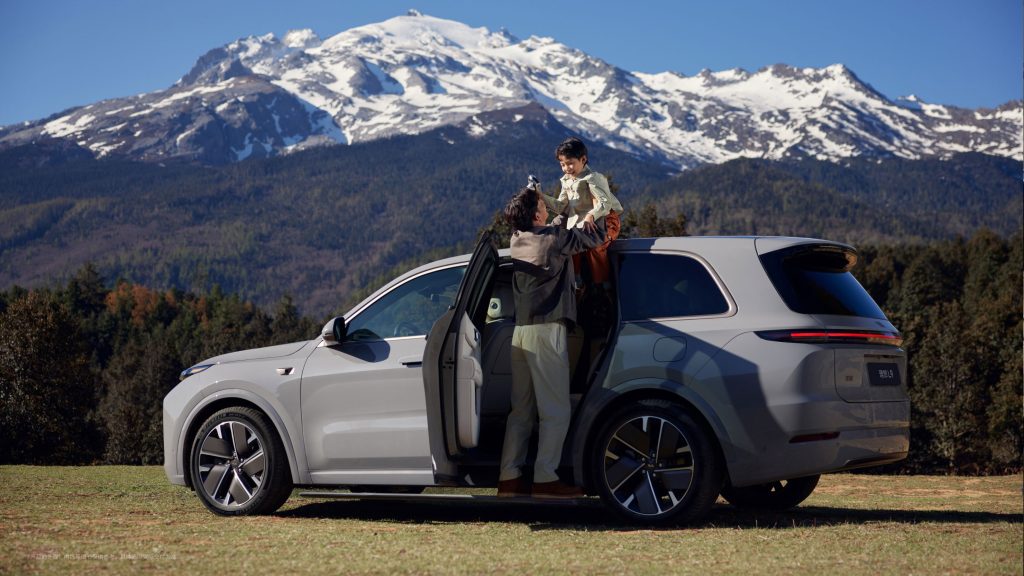
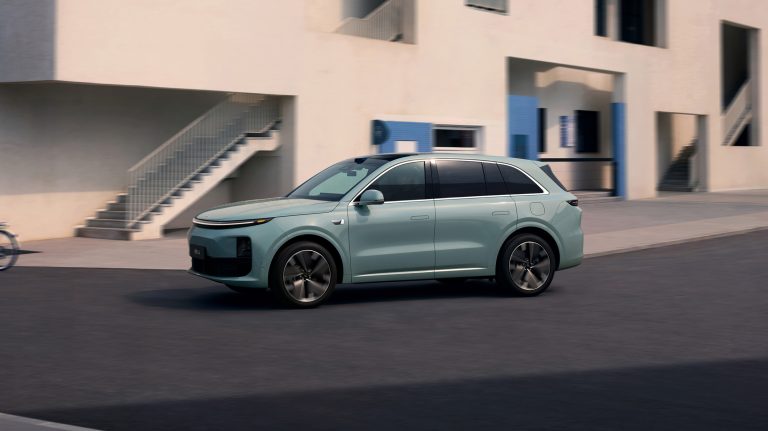

![[POLICY WATCH] CHINA’S 2025 CAR SCRAPPAGE SCHEME: HOW NEVS ARE RESHAPING THE MARKET](http://www.zingevs.com/wp-content/uploads/2025/07/388ec94d-e2cc-4894-97e0-48762c7e4d1d-1024x615.jpg)

